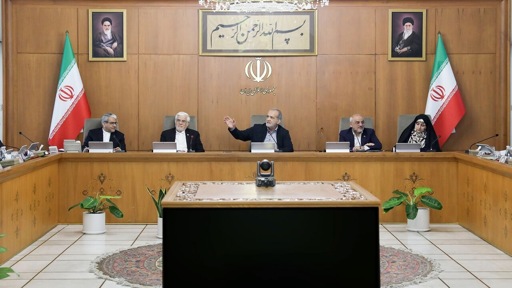On Sunday, September 28, Iran rejected the invocation of international sanctions against it under the snapback provision, claiming they are illegal and unjustified. It declared that neither Iran nor any other member country of the UN is obliged to recognize and implement these sanctions.
A day after the UN sanctions were revived, a statement issued by the Iranian Foreign Ministry claimed that the three European countries, the UK, France, and Germany, along with the US, “misused the dispute resolution mechanism”, under the Joint Comprehensive Plan of Action (JCPOA) and UN Security Council resolution 2231, to target Iran illegally.
The statement emphasized that “resolution 2231 and its associated restrictions regarding Iran’s peaceful nuclear program must be regarded as having expired on October 18, 2025” as provided by the JCPOA, which was signed in 2015 for ten years.
Meanwhile, the United Nations, in a note presented to reporters by the office of the spokesperson of the UN secretary general on Sunday, confirmed that all the international sanctions against Iran which were withdrawn in 2015 under Security Council resolution 2231 were reactivated and became active from 8 pm, September 27.
The UN note claimed that “all provisions of” resolutions adopted between 2006 and 2010 to impose international sanctions on Iran “have been re-applied in the same manner as they applied before the adoption of resolution 2231 on 20 July 2015.”
The Iranian statement claimed that E3 invoked the “snapback” mechanism “under US provocation and pressure” despite themselves failing to fulfill their part of the commitments as the signatories of the JCPOA.
The JCPOA was signed by the three European countries, along with the US, China, Russia, and Iran, in July 2015. It imposed restrictions on the Iranian nuclear program in return for lifting the international sanctions. However, within three years of its signing, the US unilaterally withdrew from the deal during President Donald Trump’s first term in 2018. The US also imposed numerous unilateral sanctions against Iran.
E3 acted in bad faith
The E3 tried to mediate between the US and Iran during the Joe Biden administration to bring the US back into the treaty. After waiting for over a year, Iran announced its own retaliatory measures, including breaching JCPOA restrictions on its nuclear enrichment, claiming the measures to be in line with the provisions of the agreement in the context of unilateral punitive measures from the US.
The European countries started demanding Iran’s complete adherence to the JCPOA provisions, despite failing to convince the US to withdraw the sanctions.
In June of this year, they voted in favor of a resolution in the International Atomic Energy Agency (IAEA) accusing Iran of violating its safeguard agreement. The resolution was used by Israel and the US to launch military strikes in Iran that killed over a thousand people and caused massive damage to civilian and nuclear infrastructure.
Iran has claimed that, as per the JCPOA and NPT, European signatories should have opposed the Israeli and US aggression on its nuclear plants. Instead, they outrightly supported them. It also accused IAEA director Rafael Grossi of aiding in the Israeli and US attacks and stopped cooperating with the agency.
The Europeans used Iran’s refusal to allow IAEA inspectors inside the country to trigger the “snapback” mechanism under the JCPOA, despite knowing the treaty is going to expire by October 18.
On Friday, China and Russia presented a draft resolution in the UNSC for suspending the “snapback” of sanctions for six months to give diplomacy a chance. The resolution was rejected by a majority of nine to six after it was put to vote.
“The European parties to the JCPOA, like the US, have acted in blatant bad faith, committing persistent and serious violations of both the letter and the spirit of the JCPOA, while making no genuine effort to resolve disputes in good faith,” the Iranian statement said.
Claiming the UK, France, and Germany violated the “relevant provisions of the JCPOA while pushing for the “snapback”, Russia declared on Monday that “it has all reasons to believe that snapback is null and void.”
On Friday, official spokesperson of the Chinese Ministry of Foreign Affairs, Guo Jiakun reiterated his country’s position of opposing any “threat of force, sanctions and pressuring” in the matter. He claimed that “snapback” is not a constructive move as it will never help rebuild trust and build bridges.”
The post Re-imposition of international sanctions is illegal and unjustified, says Iran appeared first on Peoples Dispatch.
From Peoples Dispatch via this RSS feed


